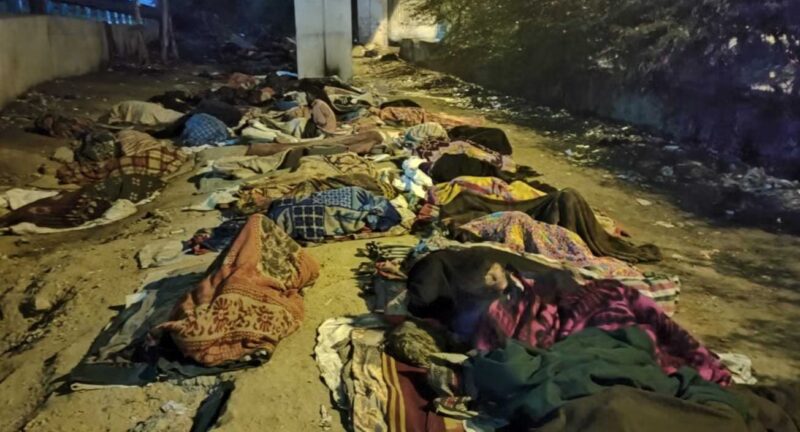
The Burden of Shame: How It Shapes Men’s Lives and Emotional Worlds
Introduction: The Invisible Weight of Shame
Shame is one of the most powerful yet least spoken-about emotions in men’s lives. Unlike guilt, which is tied to a specific action (“I did something bad”), shame is far more pervasive and internalized (“I am bad”). It is an identity wound that runs deep, shaping how men see themselves, how they relate to others, and how they navigate the world. Shame is not just an individual experience but a deeply relational and social one, reinforced by cultural expectations of masculinity.
For many men, shame becomes so intolerable that they develop compensatory strategies to escape it. These strategies often include aggression, hyper-independence, emotional withdrawal, or overcompensating displays of masculinity. The inability to express vulnerability turns into a survival mechanism, leading to emotional disconnection and isolation. To understand why shame holds such a powerful grip on men, it is necessary to examine how it is instilled in them from an early age through socialization.
Socialization: How Men Learn to Carry Shame
From childhood, boys are conditioned to associate their worth with performance, strength, and control. The message is clear: to be a “real man” means being emotionally stoic, self-sufficient, and dominant. Boys quickly learn that emotions such as sadness or fear are unacceptable, as they are often met with ridicule or admonition. A young boy who cries is frequently told to “man up” or “stop acting like a girl,” reinforcing the idea that emotional expression is a sign of weakness. In school and among peers, boys are placed in environments where social status is linked to success, dominance, and competence. Those who struggle academically, socially, or athletically often internalize a deep sense of inadequacy, which later manifests as shame.
Rigid gender roles further shape this emotional landscape. Men are expected to be protectors and providers, roles that leave little room for emotional struggles. When they fail to meet these expectations—whether through financial hardship, unemployment, or relationship difficulties—the resulting shame can be overwhelming. Sexual performance is another area where masculinity is tightly bound to self-worth, leading men to feel deep shame if they experience struggles with intimacy or confidence. These lessons form the foundation of male identity, creating an emotional world where shame is ever-present but vulnerability remains a forbidden language.
Shame and the Fear of Vulnerability
Vulnerability is often perceived as a direct threat to masculinity. To express emotional struggles, failures, or fears is to admit weakness—something that contradicts the rigid ideals of traditional masculinity. This creates a paradox: the more shame men feel, the more they avoid vulnerability, yet avoiding vulnerability only deepens the shame. Without safe spaces to express emotions such as fear, sadness, or self-doubt, these feelings often get redirected into other behaviors. Shame frequently manifests as anger and aggression, as externalizing emotions can feel safer than acknowledging internal pain. When men feel small, weak, or powerless, aggression can become a way to reassert control and dominance.
For some, emotional detachment becomes a primary defense mechanism, leading to numbness and avoidance of deep relationships. Others channel their feelings into workaholism and perfectionism, attempting to compensate for a deep-seated sense of inadequacy through constant achievement. In other cases, shame drives men toward substance use and risk-taking behaviors as a means of escape. These coping mechanisms, while temporarily effective, ultimately reinforce isolation and emotional suppression, preventing men from addressing the underlying shame that drives their actions.
The Shame of Unmet Expectations: When Men “Fail” at Their Roles
Society places an enormous burden on men to be providers and protectors. When they are unable to fulfill these roles, they often experience profound shame. Men who struggle financially, lose their jobs, or fail to provide for their families often feel a deep sense of inadequacy, even when external circumstances are beyond their control. Fathers who perceive themselves as falling short of societal or personal expectations may withdraw emotionally, believing that their failures make them unworthy of connection. Similarly, men who struggle with romantic relationships or sexual confidence often internalize shame, feeling as though their worth as men is diminished.
Poverty, Vulnerability, and the Exaggeration of Shame
Economic hardship amplifies shame in profound ways. Poverty is not just about financial lack; it is a social condition that strips individuals of dignity, autonomy, and a sense of worth. For men, poverty is often intertwined with masculine identity, creating additional layers of emotional distress. Financial instability undermines the traditional masculine ideal of being in control, leading to feelings of powerlessness and failure. In an attempt to counteract the shame of poverty, some men resort to hyper-masculine behaviors, including aggression, criminal activity, or risk-taking, as a means to reassert their sense of masculinity.
The social stigma surrounding poverty reinforces cycles of isolation. Men who struggle financially often withdraw from relationships and social support due to the shame of not being able to “provide.” This withdrawal leads to further emotional and psychological distress, reinforcing feelings of depression and hopelessness. Shame not only keeps men trapped in emotional distress but also perpetuates systemic inequality, making it harder for them to seek help or break free from damaging social expectations.
Breaking the Cycle: Moving Toward Emotional Liberation
Healing from shame requires challenging the cultural narratives that men have internalized. This is not solely an individual process but a relational one—men need spaces where they can be vulnerable without fear of judgment or emasculation. Developing emotional literacy, where men learn to name and express emotions beyond anger, is a crucial step toward healing. Finding safe relationships with friends, partners, or therapists who allow for vulnerability without reinforcing shame is equally important.
Redefining masculinity to embrace a more flexible and human-centered identity can help dismantle the rigid expectations that keep men trapped in cycles of shame. Community support is also essential—men need more spaces where they can openly discuss their struggles without fear of rejection or humiliation. By fostering environments that prioritize emotional well-being over rigid gender norms, men can begin to break free from the shame that has shaped their lives for too long.
Conclusion: From Shame to Connection
Shame is not an emotion that men can simply suppress or “power through.” It is a relational wound that requires relational healing. When men are taught that vulnerability is weakness, they are denied the very thing that could set them free. Redefining masculinity in a way that allows for full emotional expression is crucial to fostering healthier, more connected lives. True strength lies not in emotional suppression but in the courage to connect, to be seen, and to embrace one’s full emotional range. Only then can men begin to unburden themselves from the shame that has weighed them down for far too long.
Related Posts
Unseen, Unloved, Unhealed: What Hypermasculinity Conceals in India’s Homeless Men
Introduction In a men’s recovery shelter I work at in Delhi, I sat across...
The Socio-Psychogenesis of Suicide in Kota: A Psychologist’s Reflections
As a psychologist working in Kota, I am deeply immersed in the lives of students...


